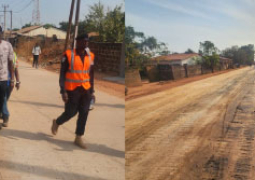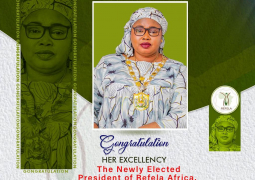
The signed MoUs aims to strengthen water quality monitoring, share procedures, and promote integration for the regulation of water and sanitation services.
Speaking at the MoU signing ceremony between PURA and FSQA held at the PURA office, the director general of PURA, Yusupha M. Jobe, outlined that water reliability and quality management are essential for public utilisation. He thanked the management of FSQA for the partnership venture, noting that it seeks to promote collaboration and knowledge sharing for effective regulatory undertakings.
Mr. Jobe thanked his Zambian counterpart for the warm reception accorded to PURA staff during their mission to Zambia. He informed the DG that this development aligns with the PURA Strategy 2022-2024 which enabled PURA to develop the first regulation for Water and Sewage Services for The Gambia.
He expressed hope that the new partnership would open up more progressive collaborations and partnership opportunities.
The director general of FSQA, Mamodou Bah, expressed hope that the new partnership would yield benefits of sustainable water management and promote regulations value-chain in the assurance of water quality.
He stated that such collaborations are a key and essential prerequisite for the avoidance of water-related contamination. He described the partnership as timely and expected to ensure collaborative monitoring and laboratory test-related works between the two institutions.
“Water is life, and it is very significant to human life. As regulators, we cannot wait while seeing a ticking time bomb in the water sector. The right approach is synergy and partnership,” FSQA DG expressed.
In a similar engagement, though in a virtual ceremony, the National Water Supply and Sanitation Council of Zambia (NWASCO), Director Kelvin Chitumbo signed an MoU with PURA. He said NWASCO was happy to associate itself with PURA in signing the MoU. “We look forward to implementing the activities outlined in the document,” Chitumbo stated.
Director Kelvin Chitumbo also expressed commitment to effectively work with PURA to enhance regulations on water, stating that they are poised to focus on capacity building and knowledge sharing for the good of both institutions.





